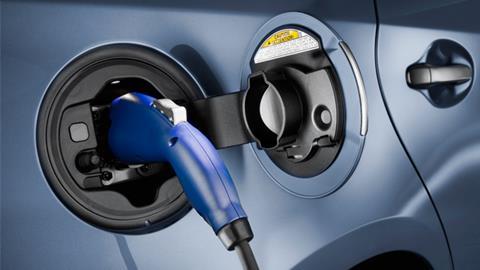
The government claims electric vehicle drivers will benefit from lower energy bills and cheaper motoring under a plan to unlock the potential of smart electric vehicle charging.
The Electric Vehicle Smart Charging Action Plan, published by the government and Ofgem, sets out steps being taken to utilise the potential of smart charging and make it the preferred method of long-duration charging by 2025.
Smart charging can enable EV owners to charge them when electricity is cheaper or cleaner, allowing them to power their home using electricity stored in the vehicle, or even sell it back to the grid for profit. It is claimed high-mileage motorists could save up to £1,000 a year through smarter charging.
To back this up, the government has also announced £16m funding from the Net Zero Innovation Portfolio (NZIP) for technologies that harness the potential of smart charging, including a smart street lamppost which will enable motorists to access smart charging on the move, and projects that will enable domestic appliances, from heat pumps to electric vehicle charge points and batteries, to integrate into a smarter energy system.
Energy and climate minister Graham Stuart said: “We want to make smart charging an easier choice for drivers of electric vehicles, whether that is charging on the driveway, at the workplace, or parked on the street. To do that we need to build new network infrastructure at pace, using the latest available technologies.
“Today’s plan sets out how we will work with Ofgem and industry to kickstart the market for smart charging, which we are backing up with £16m in innovation funding. This will let people take control of their energy usage, in the most convenient and low-cost way.”
Patrick Reich, CEO of EV charger aggregator Bonnet, commented: “We are delighted to see the government’s new action plan for smart EV charging, which promises further savings for EV drivers of up to £1,000 a year.
“There are currently only a few public charging networks where EV owners can benefit from variable tariffs, and Bonnet’s recent analysis suggested using those available could save motorists £238 this year. Alongside these savings, Bonnet customers are also able to save hundreds of pounds annually by taking advantage of discounted rates of 10-15%.
“We now need to see more encouragement for charge point operators to start rolling out off-peak and variable rate charging for all – as the more affordable EV ownership becomes, the faster we can start transitioning to clean transport and get on with the serious business of saving the planet.”

































No comments yet